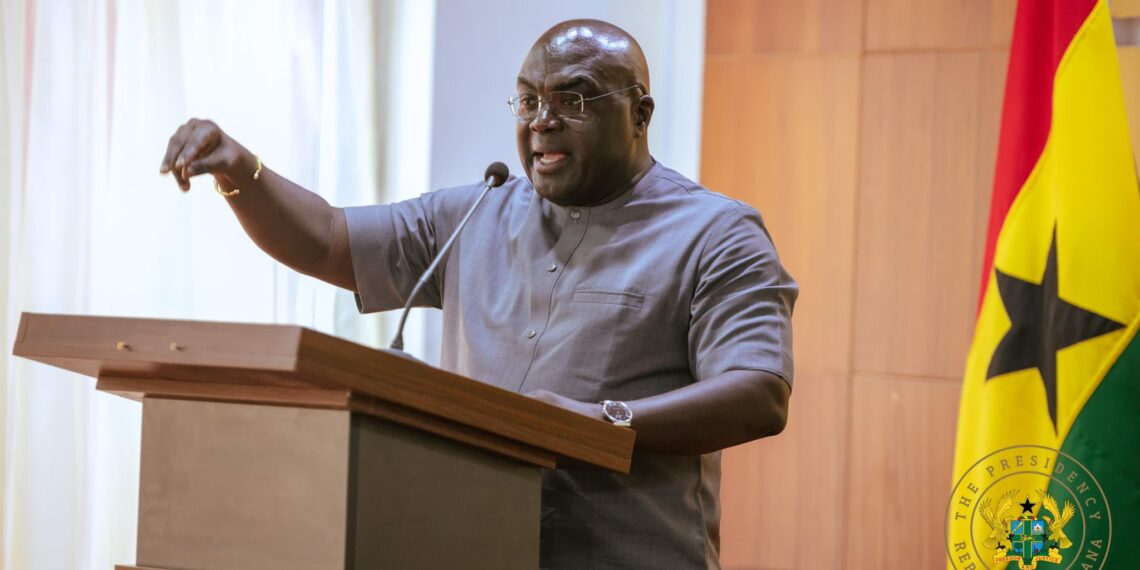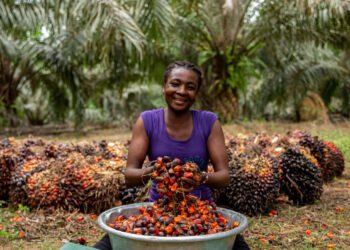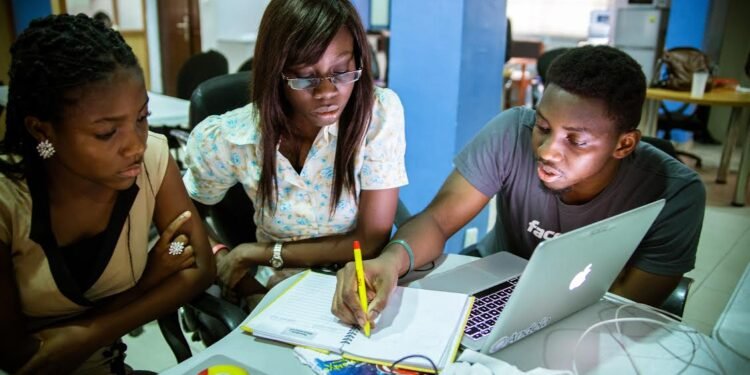Chief of Staff Hon. Julius Debrah has called for an end to the practice of using farming and weeding as punishment in schools, urging instead that agriculture be positioned as a driver of innovation, dignity, and entrepreneurship.
Speaking on behalf of President John Dramani Mahama at the launch of the government’s School Farm Initiative in Accra, Hon. Debrah said the programme is intended to transform schools into vibrant centres of agricultural learning and production.
“When a child is punished with weeding, the child grows up associating farming with shame or suffering. Let children see farming as innovation, not punishment,” Hon. Debrah urged, stressing that farming must be seen not as a disciplinary measure but as a competitive and rewarding enterprise for Ghana’s youth.
At the event, the Chief of Staff outlined the government’s vision to integrate agriculture into everyday teaching. He explained that the School Farm Initiative, a flagship under the Presidential Initiative on Agriculture and Agribusiness (PIAA), seeks to realign perceptions of farming away from “a last resort” to a tool for national pride and prosperity.
Hon. Debrah emphasised that the initiative is not simply about growing food but about planting “the seeds of self-reliance, creativity, and entrepreneurship” in young people. He challenged school heads, particularly within the Ghana Education Service (GES) and the Conference of Heads of Assisted Secondary Schools (CHASS), to show leadership in making school farms vibrant and sustainable.
“The GES must ensure that agriculture is woven into teaching and learning,” Hon. Debrah stated.

Outlining the framework, he explained that the government will provide enabling policies and national coordination, while GETFund will handle infrastructure development. National Service personnel will support with technical expertise, and teachers alongside parents are expected to mentor students.
The Chief of Staff highlighted this collaborative approach as essential to the success of the programme. He also appealed to teacher unions such as NAGRAT and CCT-GH to embrace the initiative, stressing that it requires broad stakeholder buy-in.
Describing the School Farm Initiative as a “legacy project,” Hon. Debrah drew parallels with General Kutu Acheampong’s “Operation Feed Yourself” campaign in the 1970s, which inspired a generation of Ghanaians to embrace agriculture. “We can do that again,” he said, urging families and communities to join in reshaping attitudes toward farming.
Cutting Costs and Securing Food
The economic rationale behind the initiative was further elaborated by Dr. Peter Boamah Otokunor, Director of the Presidential Initiative on Agriculture and Agribusiness.
“In 2024 alone, the Government of Ghana spent over GHS 2.8 billion on feeding about 1.37 million students in second-cycle institutions,” Dr. Otokunor disclosed, noting that the programme is expected to reduce the government’s huge expenditure on feeding Senior High School students.

By producing their own food, he explained, SHSs could slash annual feeding costs by 30 to 50 percent, translating into savings of between GHS 840 million and GHS 1.4 billion. He further highlighted that the initiative would cover over 15,000 acres of farmland across 700 schools, cultivating strategic food crops and rearing livestock.
Beyond cost savings, the School Farm Initiative is also designed to address unemployment and skills development.
According to Dr. Otokunor, the programme will directly employ between 1,400 and 2,100 unemployed Agricultural College graduates, while creating 5,000 to 10,000 indirect jobs in agro-processing, logistics, and input supply chains. He argued that this approach will equip thousands of students each year with hands-on experience in modern agriculture and agribusiness.
“A child who learns to grow food will never go hungry. A school that cultivates its own food will never lack. And a nation that equips its youth with agricultural knowledge and skills will always be food secure”
Dr. Peter Boamah Otokunor, Director of the Presidential Initiative on Agriculture and Agribusiness
Hon. Debrah stressed that the School Farm Initiative should be embraced not only as a government programme but as a movement of national pride and food sovereignty.

“If we succeed, we will not only secure food for our nation,” Debrah concluded, reiterating that its long-term goal is to reduce food import dependence, secure food availability, and transform agriculture into a dignified career pathway for young Ghanaians.
President John Dramani Mahama is expected to officially launch the programme in the coming weeks at Kpedze Senior High School in the Ho West District of the Volta Region. The launch is expected to mark a major step in Ghana’s push to reposition agriculture at the heart of education and national development.
READ ALSO: $4 Billion Cocoa Inflows to Rescue Cedi























